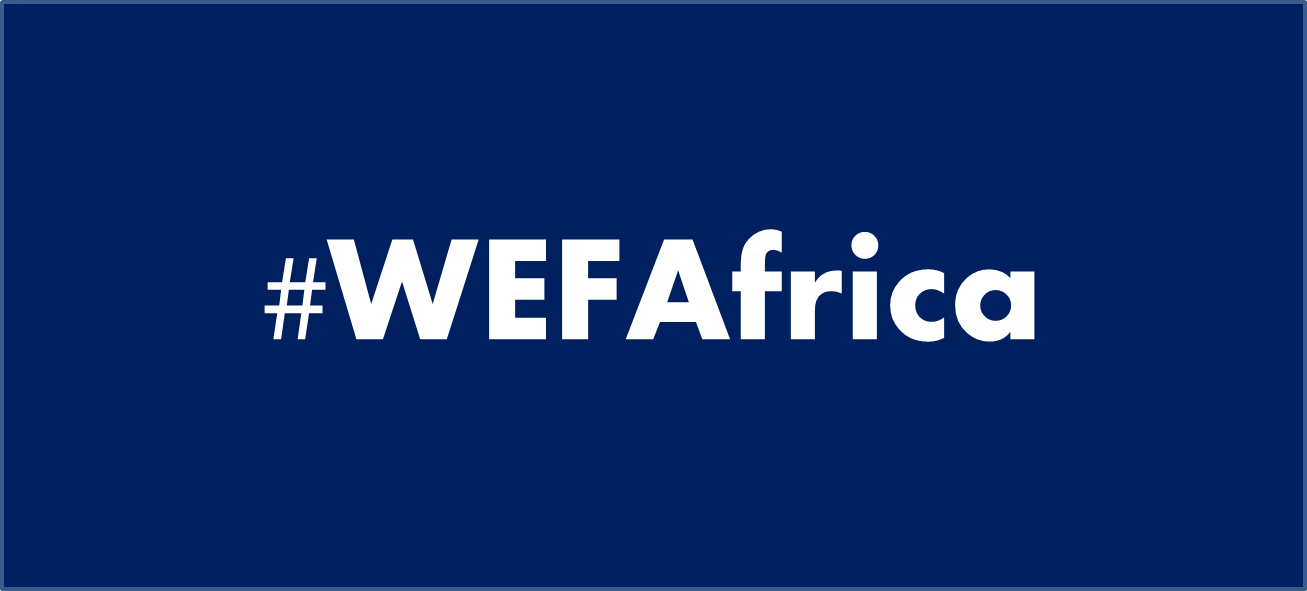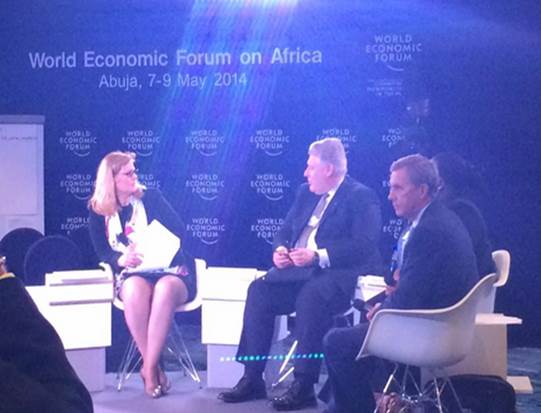New Vision for Education Session at #WEFAfrica

By Sarah Brown, Executive Chair, Global Business Coalition for Education
The Global Business Coalition for Education (GBC-Education) has collaborated with the World Economic Forum on Africa in Abuja to contribute to its session on global education and skills. This year, the World Economic Forum team is scoping out the skills gap and new ways to provide education in the regional WEF meetings. The Abuja meeting feeds into the scoping of the broader project and how it relates to other initiatives, including the Global Education Platform and the Brookings Learning Metrics Task Force as well as GBC-Education’s core efforts for new partnerships, scalability and sustainability of private sector investments in education.
On behalf of GBC-Education, I moderated the session in Abuja with a brief to lead the discussion on how to:
– Identify, understand and consider how to shrink the gap between the region’s employment needs and education outcomes.
– Identify technological innovations to deliver education for greater access across the region.
– Explore sustainable funding models from the private sector to complement government funding for education.

The opening speakers (or ‘firestarters’ as they are called in ‘WEF-speak’) set out to explore what the skill gaps are – especially for technology – and how we can shrink the gap between the region’s employment needs and education outcomes (again especially using technology). Our Firestarters for this session were :
– John Davies, VP of Sales and Marketing and GM, World Ahead Program at Intel (GBC-Education Founding Member)
– Duncan Mitchell, SVP Middle East, Africa and Russia, Cisco
– Betty Enyonam Kumahor, Regional Director, ThoughtWorks Africa
As John Davies of Intel said, “Many 21st Century jobs are in industries that did not exist a decade ago. Entrepreneurs who apply IT skills to create new value for consumers, businesses and governments are creating whole new industries. The use of IT in the classroom can help train and encourage entrepreneurial skills.”
The challenge for Africa – as it holds the lowest rankings of education index and international test scores whilst being the second largest continent – lies in the lack of financing and infrastructure which further widens the education and skill gaps in the region.
As new school models and distribution platforms have emerged worldwide to disrupt the status quo of education, the opportunity to improve access and shrink the gap has topped the regional agenda. The session explored how technological innovations can deliver education for greater access across the region. Sustainable funding models from the private sector that complement government funding for education were also explored in the session.
Three breakout groups looked at the goals for curriculum, infrastructure, and delivery platforms in order to innovate education in Africa.
Njideka Harry, President and CEO, Youth for Technology Foundation (YTF) led a discussion focused on defining the education-employment gaps, highlighting the need to address relevant knowledge and skills in the region for future employability. Access and safety were key topics brought forward by the current anxiety over the abducted Chibok girls in northeastern Nigeria. This session was also joined by Ojonwa Deborah Miachi, 22, and Damola Morenikeji, 21, two A World at School Global Youth Ambassadors who shared their experiences of navigating the education system in Nigeria to fulfill their own potential and their personal concern, shared by many young people, for the future of Nigeria’s 10.5 million out-of-school children.
A second group focused on ideas for technology infrastructure for effective distribution led by Elizabeth Migwalla, Director Government Affairs-Africa at Qualcomm. The many modes of connectivity and the speed at which infrastructure is implemented were seen as providing opportunity, but many hurdles remain to reach the most remote and marginalized children. The group concluded that the need for the private sector to work in collaboration with each other, and with government, lies at the heart of successful distribution.
The third breakout group, led by Prasad Kotikela, Head of Africa at Tech Mahindra, focused on how to deliver education with accreditation through technology, looking at what platforms exist and how emerging content platforms and aggregators can be adopted in Africa.
Overall the session served to highlight the most critical gaps and how technology can help bridge these, and to provide more effective distribution of education, as well as addressing how we can accumulate relevant content, accredit content, and tackle financing challenges.
Moving forward, the World Economic Forum will prepare a summary note and add in input from various regional meetings. GBC-Education will continue to collaborate with the World Economic Forum team particularly to map out the skills gap and ways to enhance the Global Education Platform initiative to develop a technology solution.
Please contact Kevin Kalra at GBC-Education if you would like to know more about the session summary when this is ready and how GBC-Education will take this forward.
